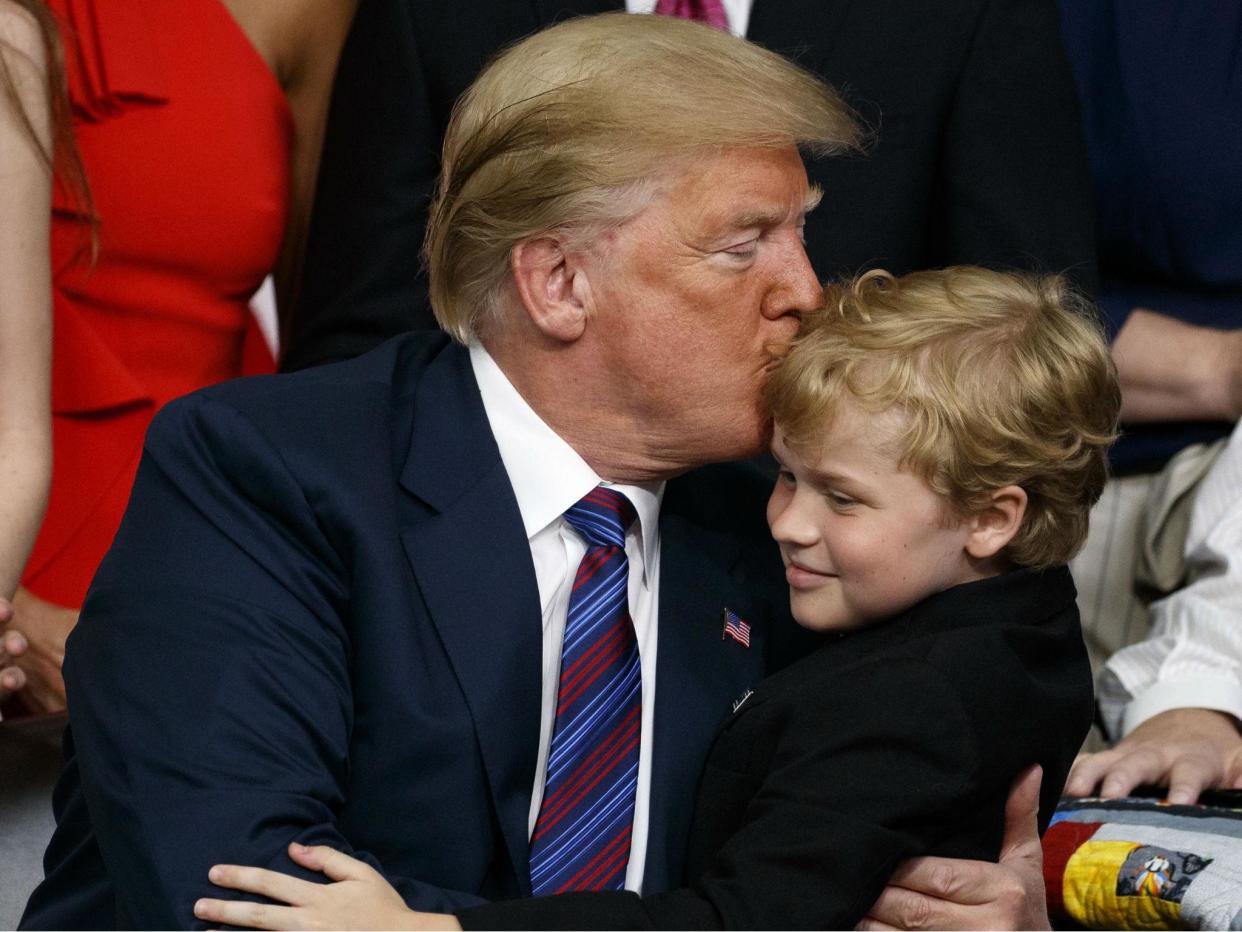Trump signs right to try bill for terminal patients to receive experimental drugs

President Donald Trump has signed a so-called “right to try” bill that will allow terminally ill patients in America to receive experimental treatments before they finish clinical trials required by the Food and Drug Administration.
Mr Trump was flanked by a eight-year-old boy with muscular dystrophy, a degenerative genetic disease, while signing the bill, and said that the new law will give patients like the child hope.
“There are no options, but now you have hope. You really have hope,” Mr Trump said during the signing ceremony.
Mr Trump had previously promised to create a national right to try bill during his State of the Union in January. Similar legislation is already the law in 38 states across the country, allowing people who are too sick for clinical trials to receive the experimental procedures.
During the ceremony, Mr Trump said that existing FDA guidelines — which give the FDA discretion to approve applications for experimental treatments — did not go far enough to help patients whose time on earth may be limited.
“For countless patients, time is not what they have,” Mr Trump said. “With the right to try, patients with life-threatening illnesses will finally have access to experimental treatments that could improve or even cure their conditions.”
While supporters say that the law will give terminally ill patients the greatest chance possible to receive effective treatments, opponents question the wisdom of cutting the FDA out of the process, and question whether patients will actually get greater access to the experimental drugs, since pharmaceutical companies would still need to sign off on the exception.
Mr Trump had called for a version of the bill that would benefit “the people”, and not insurers or drug manufacturers.

